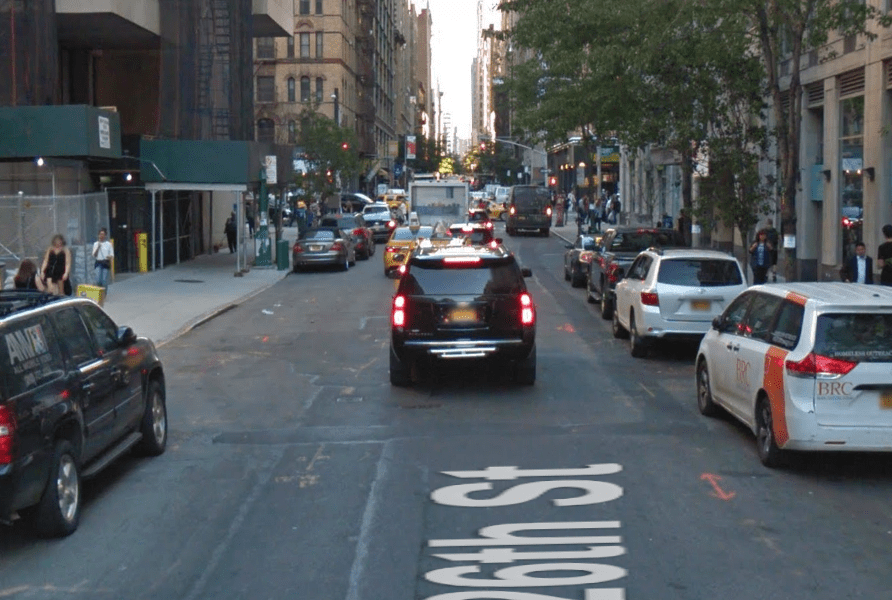DOT inaction on providing Manhattan cyclists with protected crosstown bike routes has claimed another life.
At around 8:15 yesterday morning, a charter bus driver struck and killed 36-year-old Dan Hanegby as he rode a Citi Bike on W. 26th Street between Seventh and Eighth avenues.

Details of the crash remain unclear. The Times reported that Hanegby, riding with eastbound traffic, swerved to avoid hitting a double-parked van before the collision, but no other press reports that we've seen mention a double-parked driver, and the NYPD public information office could not confirm the Times account.
Though it appears likely the bus driver, who was also eastbound, was passing at an unsafe distance, NYPD and media outlets blamed Hanegby, saying he "lost control" of the bike.
An NYPD press statement read:
A preliminary investigation determined that a 52-year-old operator of a charter bus and the bicyclist were traveling eastbound on 26th street when they collided. The bicyclist fell to the ground which resulted in the rear tires rolling over the bicyclist.
Hanegby, who lived in Brooklyn Heights with his wife and two kids, was an investment banker and a former star tennis player in Israel. He was the first Citi Bike rider killed by a driver since the bike-share system launched in 2013.
The block of W. 26th Street where Hanegby was killed has two lanes for curbside parking but no bike infrastructure. Cyclists and safe streets advocates have for years implored DOT to add crosstown bike lanes in Midtown and Chelsea. Those efforts intensified after a postal worker in a USPS truck killed Marilyn Dershowitz on W. 29th Street in 2011.
In 2015, then-Manhattan borough commissioner Margaret Forgione told Manhattan Community Board 4 that DOT was exploring protected crosstown routes, but cited "large vehicle volumes" as a barrier to implementation. No improvements for east-west cycling have materialized since, despite the addition of north-south protected routes.
In a statement, Transportation Alternatives Executive Director Paul White said Hanegby's death should prompt the city to add bikeways in neighborhoods where motorized traffic is heaviest. "Cyclists aren’t killed when they have infrastructure that meets their needs," White said. "Since 2013, no cyclists have been killed while traveling within protected bike lanes."
The design of W. 26th Street speaks to the lack of political will to protect people on bikes from reckless drivers, White told Streetsblog.
"Human life matters more than on-street parking, and yet our streets don't reflect that," White said. "We're still trading human life for parking in 2017, and that needs to stop."






